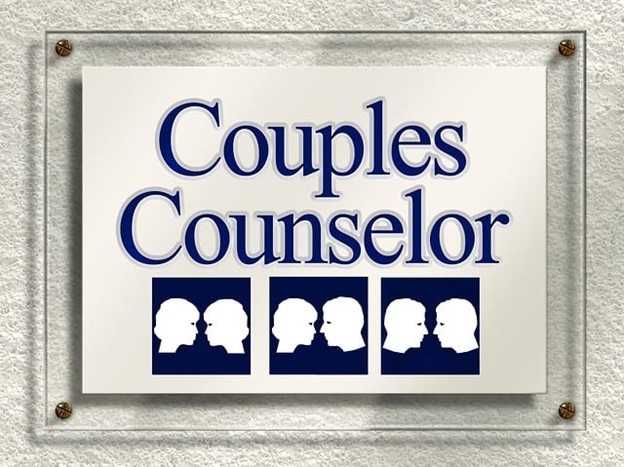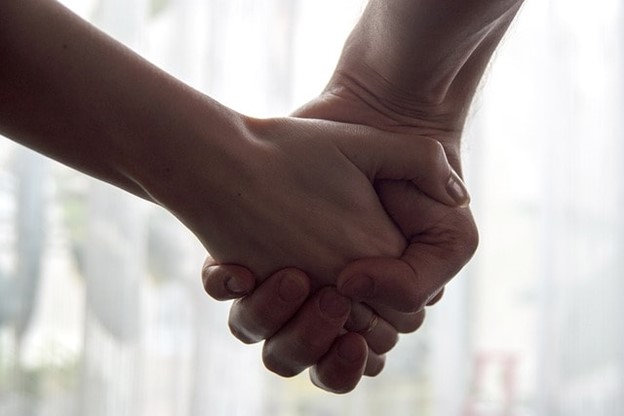Couples Therapy for Addiction
Using Behavioral Couples Therapy to Achieve Recovery Together
At Couples Rehab Guide, we firmly understand that when addiction affects a relationship, it can feel like the entire foundation is crumbling. Substance abuse can disrupt family dynamics and create communication challenges between couples. But there’s hope.
In many cases, couples addiction therapy offers a path forward, helping partners navigate the challenges of recovery together.
In this resource from Couples Rehab Guide, we’ll explore how couples can heal and grow stronger through addiction treatment in the form of couples therapy, as well as explore how detox and residential substance abuse treatment can provide the foundation needed if you are both actively using drugs or drinking.

Understanding Addiction in Relationships
- Trust breakdown
- Communication difficulties
- Financial strain
- Emotional distance
- Codependency
- Increased conflict
Addiction can also lead to sexual dysfunction, infidelity, and emotional emptiness, which further strain intimate relationships.
Recognizing these challenges is the first step toward healing. Couples addiction therapy addresses both the substance use disorder and its effects on the relationship.
Why Choose Couples Addiction Therapy?
While individual therapy is crucial for addiction recovery, couples therapy offers unique benefits:
- Unified approach: Both partners work together toward recovery goals.
- Improved communication: Learn healthier ways to express needs and concerns through relationship therapy, promoting positive behaviors and experiences.
- Rebuilding trust: Work through betrayals and create a foundation for honesty.
- Addressing codependency: Identify and change enabling behaviors.
- Strengthening the relationship: Develop skills to support long-term recovery and intimacy.

The Core Types of Couples Addiction Therapy
Behavior therapy is a general approach used in couples addiction therapy to support both partners and foster positive habits and communication. Several therapeutic approaches can be effective for couples dealing with addiction:
Behavioral Couples Therapy (BCT)
BCT is an evidence-based treatment specifically designed for couples where one partner has a substance use disorder. Key components include:
- Sobriety Contract: The couple agrees on daily activities to support sobriety.
- Communication skills training: Learning to express feelings and needs effectively.
- Positive activities: Increasing shared, enjoyable experiences without substances.
Research shows BCT can improve relationship satisfaction and reduce substance use more effectively than individual treatment alone. Additionally, engaging in BCT can lead to improved relationship and family functioning, enhancing overall well-being within the family setting.
Emotionally Focused Therapy (EFT)
EFT focuses on strengthening the emotional bond between partners. In addiction recovery, it can help:
- Identify attachment needs and fears
- Express emotions in a way that brings partners closer
- Create a secure base for recovery
Cognitive Behavioral Therapy (CBT)
CBT helps couples identify and change negative thought patterns and behaviors. In addiction treatment, it can address:
- Triggers for substance use
- Coping strategies for cravings
- Beliefs about addiction and recovery

The Couples Addiction Therapy Process
While every couple’s journey is unique, here’s a general outline of what to expect:
- Assessment
The therapist will meet with both partners to understand:
- The history of substance use
- Relationship dynamics
- Individual and couple goals for therapy
- The role of family members in influencing recovery and supporting abstinence
- Stabilization
Early sessions focus on:
- Creating safety in the relationship
- Establishing boundaries around substance use
- Developing crisis management plans
- Skills Building
Couples learn tools for:
- Effective communication
- Conflict resolution
- Supporting recovery
- Addressing Underlying Issues
Therapy explores:
- Root causes of addiction
- Relationship patterns that may contribute to substance use
- Trauma or other mental health concerns
- Relapse Prevention
Partners work together to:
- Identify triggers
- Create a supportive home environment
- Plan for ongoing recovery maintenance
- Rebuilding Trust and Intimacy
As recovery progresses, therapy helps couples:
- Process hurt and betrayal
- Reconnect emotionally and physically
- Envision a shared future in recovery
Overcoming Challenges in Couples Addiction Therapy
While couples therapy can be transformative, it’s not without obstacles:
- Uneven motivation: One partner may be more committed to change than the other.
- Ongoing substance use: Active addiction can hinder progress in therapy.
- Trust issues: Past betrayals may make vulnerability difficult.
- Codependency: Unhealthy relationship patterns can be deeply ingrained.
- Intimate partner violence: Behavioral couples therapy can address intimate partner violence, improving relationship satisfaction and communication among couples dealing with addiction.
A skilled therapist can help navigate these challenges, but patience and commitment from both partners are essential. It is worth noting that both the Substance Abuse and Mental Health Services Administration (SAMHSA) and the DOJ have authored studies on the efficacy of couples therapy for addiction.

Behavioral Couples Therapy: A Closer Look
Given its proven effectiveness, let’s delve deeper into Behavioral Couples Therapy (BCT) and its relationship with family therapy.
Core Principles of BCT
- Reinforcing Abstinence: BCT views the non-using partner as a valuable resource in supporting recovery.
- Positive Relationship Behaviors: Increasing caring, shared activities, and appreciation strengthens the couple’s bond.
- Communication Skills: Teaching partners to express feelings and requests clearly and listen actively.
Key BCT Interventions
- Daily Recovery Contract: The couple agrees on specific actions to support sobriety each day, such as attending meetings or checking in about cravings.
- Catch Your Partner Doing Something Nice: Actively noticing and appreciating positive behaviors to counteract negative relationship patterns.
- Shared Rewarding Activities: Planning and engaging in substance-free activities that both partners enjoy.
- Communication Skills Training: Practicing “I” statements, active listening, and problem-solving techniques.
Measuring the Effectiveness of BCT on Relationship Satisfaction
Research consistently shows that BCT, when combined with individual therapy and support groups, leads to:
- Higher rates of abstinence
- Improved relationship satisfaction
- Reduced domestic violence
- Better outcomes for children in the family
BCT typically involves 12-20 sessions but can be adapted to fit the couple’s needs and progress.

Supporting Your Partner in Recovery
Whether you’re the partner in recovery or supporting a loved one, here are ways to strengthen your relationship during this journey:
For the Recovering Partner:
- Be transparent about your recovery process
- Take responsibility for your actions
- Actively participate in treatment and support groups
- Express appreciation for your partner’s support
- Be patient as trust rebuilds
For the Supporting Partner:
- Educate yourself about addiction and recovery
- Attend support groups like Al-Anon
- Set healthy boundaries
- Practice self-care
- Communicate your needs clearly
- Celebrate recovery milestones together
Remember, recovery is a journey for both partners. It’s okay to have mixed emotions and to need support yourself.
When One Partner Isn’t Ready
Sometimes, only one partner is willing to seek help. If you’re in this situation:
- Focus on your own growth and well-being
- Set clear boundaries around substance use
- Seek individual therapy and support groups
- Consider a therapeutic separation if needed
- Keep the door open for your partner to join treatment when ready
Proper Self-Care for Couples in Recovery
Recovery can be all-consuming, but it’s crucial to nurture yourselves and your relationship beyond addiction. Try:
- Regular date nights (substance-free)
- Individual and shared hobbies
- Mindfulness or meditation practices
- Exercise or outdoor activities together
- Volunteering or community involvement
These activities can help rebuild connection and create positive associations with sobriety.
Finding the Right Therapist
The success of couples addiction therapy largely depends on finding a therapist who’s a good fit. Look for someone who:
- Has specific training in addiction and couples therapy
- Uses evidence-based approaches like BCT
- Makes both partners feel heard and respected
- Offers a treatment plan tailored to your needs
- Has experience with any co-occurring mental health issues
Don’t hesitate to interview potential therapists or try a few sessions before committing.

The Road Ahead: Long-Term Recovery
Couples addiction therapy is often just the beginning of a lifelong journey. As you move forward:
- Continue individual and couples therapy as needed
- Stay involved in support groups
- Revisit and revise your recovery plans regularly
- Be prepared for and plan for potential setbacks
- Celebrate milestones and growth together
Remember, recovery isn’t just about abstaining from substances—it’s about building a fulfilling life and relationship that supports ongoing wellness.
Set a Solid Foundation for Therapy with Detox and Rehab
Couples addiction therapy offers hope and practical tools for partners navigating the challenges of substance use disorders. By addressing both the addiction and relationship dynamics, couples can not only overcome addiction but also build stronger, more resilient partnerships.
Whether you choose Behavioral Couples Therapy or another approach, remember that recovery is possible, and you don’t have to face it alone.
If you’re considering couples addiction therapy, reach out to our caring team at Couples Rehab Guide today. Making the (totally confidential) call together can be the beginning of a transformative healing and a renewed connection, so please reach out now.


